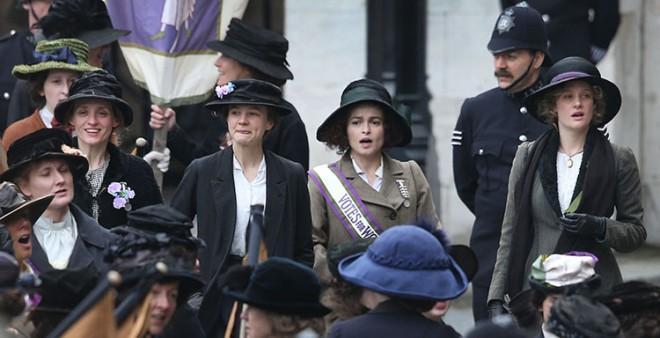The drama tells the story of an ordinary, genteel-class of British women who risked their jobs, homes, children, and lives in the fight for voting equality at the turn of the 20th century. These radically-charged women employed violence in their protests, asserting that peaceful demonstrations wouldn’t yield the results they wanted.
Films of this kind only come around every so often. They’re encouraging in that they provide perspective on where we’ve come from as women, and allow us to appreciate the dangerous groundwork that feminists have laid in order to grant future generations more agency than they had. These women–whose spirits live on in Suffragette–have provided women with countless opportunities denied to earlier generations, including the right to vote, Title IX, and reproductive rights.
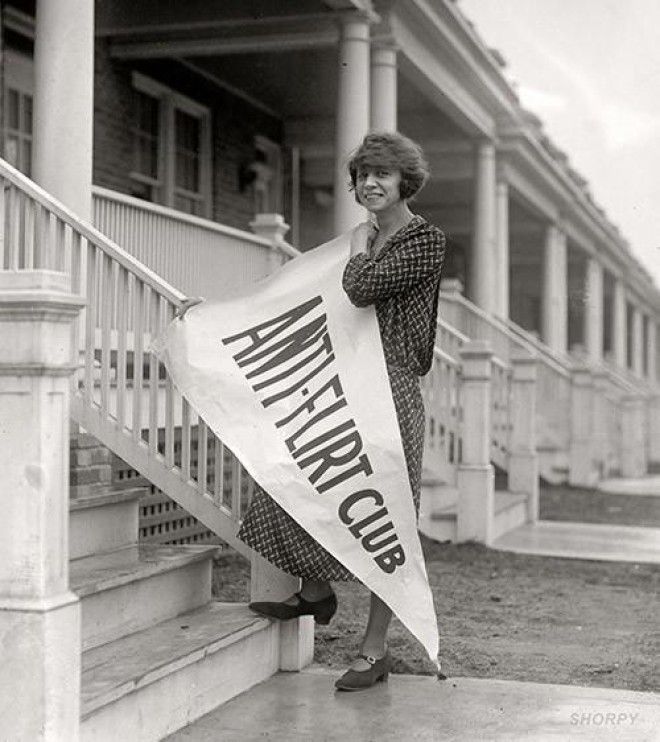
A photo taken in 1923 of “Miss Alice Reighly,” President of the Anti-Flirt Club, a group protesting street harassment.
But in the nearly 100 years since feminists helped pass the 19th Amendment, it seems that much of this selfless–and occasionally fatal–grunt work has been taken for granted. Today, discussions questioning the necessity of feminism center on a rejection of the word itself and the application of pointed criticisms to the people who subscribe to it.
Celebrities whose core values seem to match feminist praxis decline to use the term, believing feminism to be a movement focused more on complaining or hating men than on tackling social issues writ large.
Men’s rights activists readily dish on any bit of media that seems to resemble feminist politics, considering it to be an attack on individual men. Blogs like Women Against Feminism curate the opinions of women who dismiss feminist ideology.
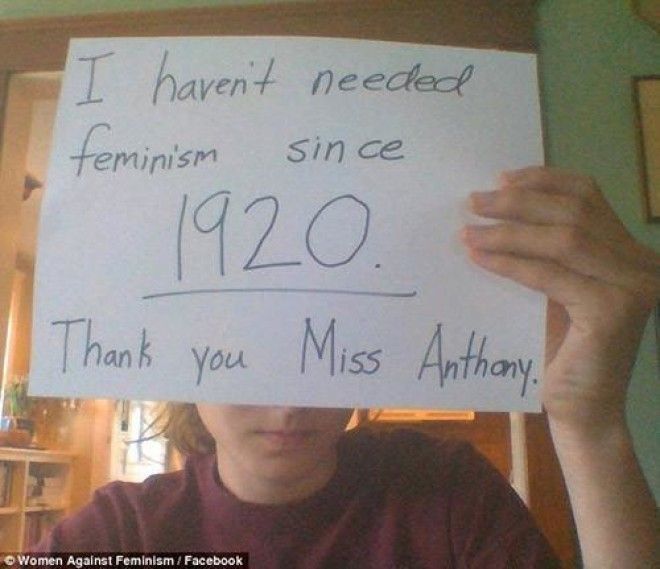
This woman is referring to Susan B. Anthony, a pivotal leader in the suffragist movement.
And yet, as these women reject the movement that has helped them gain the rights which many take for granted today, they do not highlight a new hurdle for the feminist movement so much as they echo an old, familiar one.
As suffragettes demanded voting rights in the days and years leading up to the first world war, many women did not want the vote. A good number of anti-suffrage leagues were composed mostly of women, meaning that in many cases women were creating grassroots campaigns to stop themselves from getting the vote.
Similarly, the second wave of feminism boasted a slew of women who opposed furthering their own rights. Alarmed by a rash of feminist victories in the 60s and 70s, staunch conservative anti-feminists such as Phyllis Schlafly, Beverly LaHaye, and Judy Brown helped overturn the Equal Rights Amendment, create the anti-abortion movement, halt progress on federally subsidized day-care, and stall gains made in regard to equal pay.
Ironically enough, as Susan Faluldi hints in her book Backlash, many of these leaders enjoyed professional careers and had husbands who shared domestic responsibilities, and yet simultaneously argued against these perks for other women.
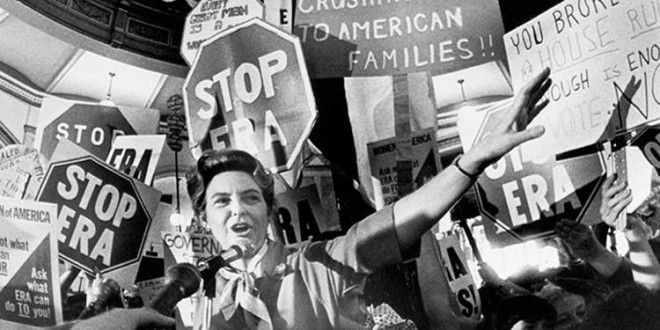
Activist Phyllis Schlafly campaigns against the Equal Rights Amendment in 1978.
Even today, women such as Wendy McElroy and Camille Paglia boast ideologies which insinuate that rape culture is either a “fallacy” or an “occupational hazard” women must simply deal with. Both are highly disturbing beliefs, given that one in four women will be the victim of sexual abuse by a partner in their lifetime.
These highly educated, influential women–like their peers on Women Against Feminism–seem to think that the important groundwork for feminism has already been made, and what’s left of the movement only exists to demonize good men. And yet through their discourse, they help maintain a cultural and legal framework that makes rape a difficult crime to prosecute.
While it’s true that women in the West have made significant social progress over the past century, it’s dangerous to say that feminism’s fight is over, especially since intersectional feminist politics aren’t only about white women’s oppression. Racialized police violence, migrant worker rights, transphobia, the effects of race in the gender wage gap, conflict in Syria and Palestine, cultural appropriation, and sexual violence against women are just drops in the bucket of serious issues that feminist thinkers and activists battle daily. Are those who do not support feminists insinuating that this work is unnecessary or unimportant? That the groundwork we are currently laying down won’t be important 50 to 100 years from now?
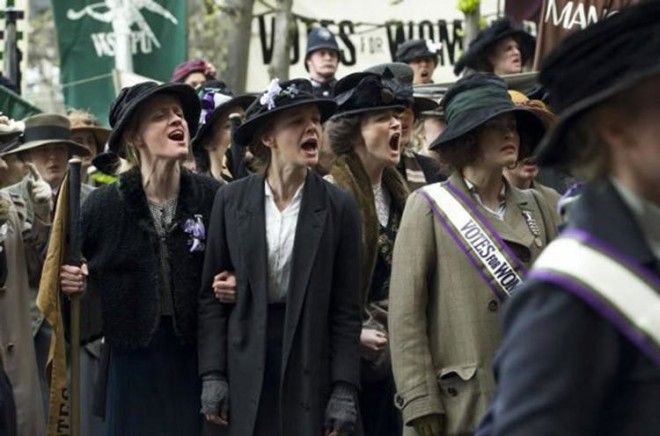
A still from the upcoming film Suffragette.
Suffragette takes place at a time of mass political and social unrest, and in some ways one which does not look that dissimilar from the world today. And yet we know what the film’s protagonists do not: life for women does get better.
But the film also reminds us that our comparatively brighter present is not one that emerged spontaneously. It came from years of thankless work on behalf of thousands, many of whose names, stories and struggles we will never know. Put simply, we are able to “forget” feminism because the movement helped provide us the platform to do so. With any luck, Suffragette will help us remember.
